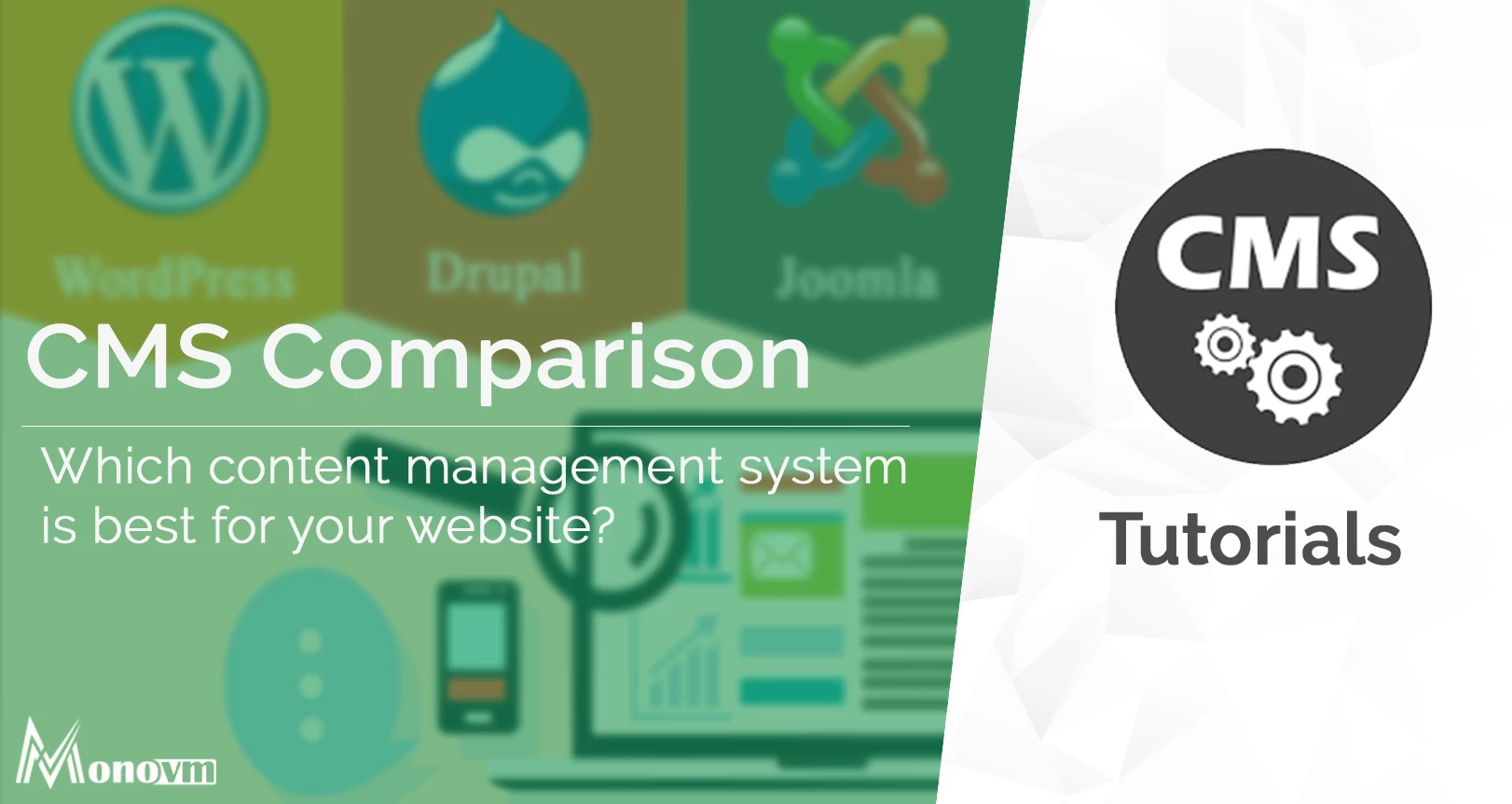List of content you will read in this article:
In our previous article about content management systems, we explained what is a CMS, its components, and its uses along with the advantages and disadvantages of using one. Now, let us delve a bit deeper into the most popular CMSes available, their strengths, weaknesses and the cases in which each one supersedes the rest.
Firstly, let us state that there is no one-fits-all solution. Each CMS is designed with certain use cases in mind and although they all serve the same purpose, each one does it in a different manner and offers unique features and customization options. As in most areas of IT, the CMS market is mainly dominated by a few large players, which are then followed a large number of less popular, yet very well-functioning options. In the case of content management systems, the giants are WordPress, Drupal, and Joomla.
Each one has a large and passionate community of developers and users, which makes it quite simple to find free support directly through their websites, countless online forums, and even books. If that is not enough, there is plenty of paid support available from third-party sources such as developers, web designers, and online consultants. Each CMS has been running for more than 15 years with no signs shutting down in the foreseeable future.
Although the different systems have varied levels of technical knowledge needed to operate, the more time and effort spent learning a specific one, the more of its features you will be able to utilize efficiently. Both WordPress and Joomla offer a nearly countless amount of plugins and services for your use, while Drupal’s customization options are endless.
Wordpress
WordPress started out as an easy-to-use blogging platform, however, with the constantly expanding database of plugins, themes, and widgets, it began being widely used for other website formats as well. With its intuitive GUI and easily accessible menus, having technical experience is not required to operate. Due to these factors, it is the CMS with the fastest initial setup time. Thanks to its blogging roots, it is very easy to paste text from a Microsoft Word document into a WordPress site, while this option is not available in Joomla and Drupal sites. The content management system also comes with WP-SuperCache plugin which optimizes performance by generating static HTML files from database-driven content for faster load times.
The biggest benefit WordPress has over its competitors is its ease of use, which is beneficial to both newbies and experts alike. It is powerful enough for web developers and designers to efficiently construct sites for their clients, who can then take over the websites’ management with little to no knowledge of PHP, HTML5, JavaScript or any other programming language. Thanks to the dominating 60% of WordPress’s market share, there is a seemingly endless online repository of support content and tutorials. That and nearly 40,000 plugins makes it the best CMS for non-technical users to quickly deploy sites.
Important Features:
- Customizable design
- Easy and user-friendly interface
- Responsive mobile support
- SEO friendly
- High security
- Powerful media management
- Multilingual support
Drupal |
If WordPress is the best platform to use for beginners, Drupal is the complete opposite. It is a powerful tool for building complex sites, designed specifically to be used by developers, thus requiring a great deal of expertise and experience to operate. Out of the three CMSs, Drupal requires the most technical knowledge, yet it produces the most advanced sites. Even though with each new release it becomes easier to use, if you cannot commit the majority of your time to learn the software or hire someone who does, Drupal probably should not be your CMS of choice. It is best suited for complex, advanced and versatile sites; ones that require complex data organization; social media networks; and online stores.
Important Features:
- Very flexible, developer-friendly interface
- Useful for producing highly advanced sites
- Good choice for community platform sites
- It has more than 36,000 modules
- Multiple language support
Joomla |
Joomla is the sweet middle ground between WordPress and Drupal. It is much easier to use than Drupal, yet still requires much more technical knowledge to operate than WordPress does. This CMS offers a platform that incorporates both: the developer-oriented capabilities of Drupal and the more user-friendly but more complex site development options of WordPress. Unlike most people think, however, it is not the best of both worlds as the others outclass is it in both aforementioned ways. Joomla is designed to perform as a community platform, with strong social networking features and even support for e-commerce. It allows you to build a site which greater content and structure capabilities than WordPress, while still being relatively easy to use when compared to Drupal.
Important Features:
- Unlimited design
- Flexible and extensible
- SEO-friendly
- Mobile support
- Multilingual Support
